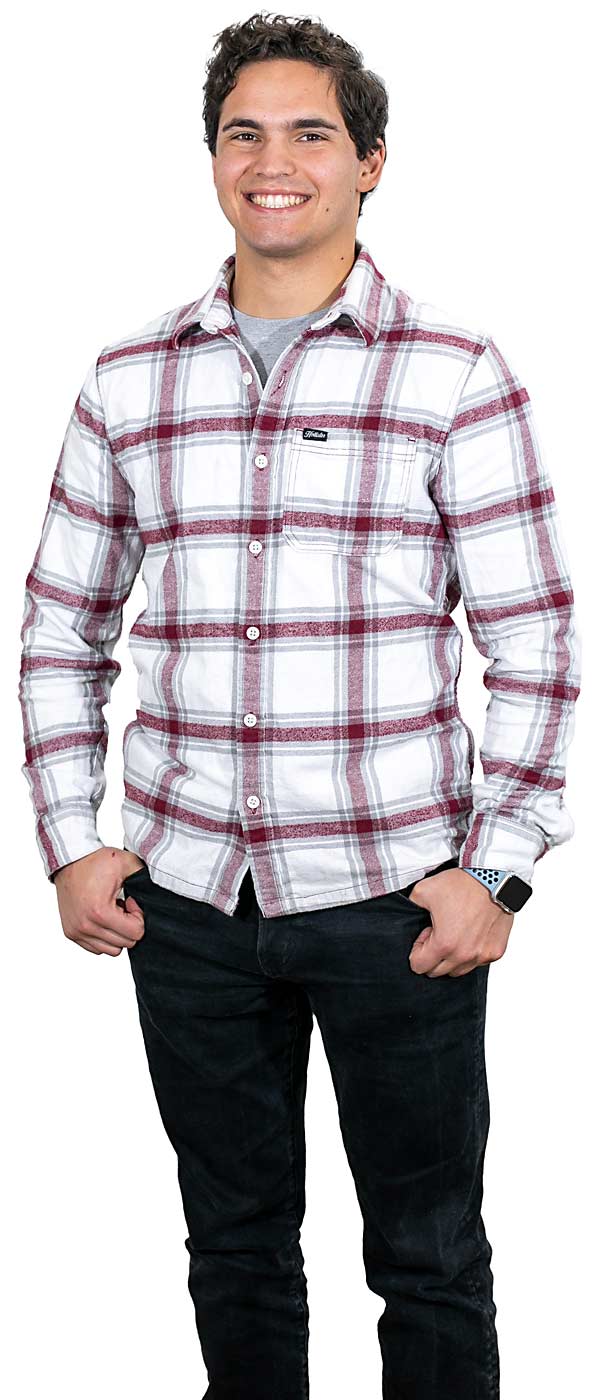family background/Thiago earned his horticulture degree from the University of Florida, a master’s degree at Penn State University and is working on his doctorate from Washington State University. He’s the son of Cecilia and Richard Campbell.
age/24
hometown/Homestead, Florida
crops/apples, mangoes
business/doctoral student at Washington State University and co-owner of Mango Men Homestead

How did you get your start?
My dad worked in a botanical garden, and we collected tropical fruits from around the world. I was lucky enough to be able to learn and eat all these tropical fruits with him and help grow everything. Our family has a mango orchard that we established, and it was pretty instrumental for me to get into agriculture and get my hands in the dirt early on. Homestead, Florida, used to have citrus, but with citrus canker problems in the ’90s, a lot of citrus got pulled out and burned. Now it has a lot of vegetable production.
How did you find your way to Washington?
I went to University of Florida hoping to get a better scientific understanding, because I have so much background in tropical fruit. I can grow them and prune them, but I don’t really understand the science behind why all that works. I wanted to get a better understanding so I could apply that in the future for developing new techniques. For my master’s degree, I went to Penn State, because the advisor, Rich Marini, was also my dad’s advisor back in the late ’80s. My dad was his first Ph.D. student, and I was his last master’s student of his career. I also wanted to go into work on a crop different than mangoes — and deciduous fruit, like apples, are a whole different ballgame. I went to work in apples and deciduous fruit to broaden my horizons, and now I’m continuing that at Washington State University.
What’s your current research focus?
I’m working on biennial bearing problems in apples, to develop better control methods to prevent and control biennial bearing. Being at the extension center in Wenatchee is advantageous because I’m a lot closer to the trees that we’re working on. I also get the perspective of the growers around here, whether they think something is feasible, if it can be used in a practical way and if a solution could be adopted by growers for their orchards.
What have you been learning in these trials?
There are several biennial bearing tree varieties, and my focus here is on Honeycrisp, which is probably the most prone to biennial bearing that you can find out here. In those, you’ll usually see the on and off years, and you’ll see a pattern within a block. If we’re able to find a way that can help revert that cycle and make those trees more annual, it is a lot more applicable when it’s on a whole block level. That way, growers can treat that entire block with a specific treatment versus one tree here and there. It’s important to treat the trees when it occurs but also try to give growers something that isn’t a drastic change and wouldn’t have drastic price increases.
What excites you about the apple industry?
I think there’s a lot of great things that are being done and a lot that can be done to make things better for everyone in the area with the research we’re doing. Hopefully, we can have an impact at the grower level where the farms can become a more successful operation. Also, I hope the work being done can help people across the country in Miami to get a decent apple, versus some of the apples I had when I was growing up. My impression of apples wasn’t great until I moved to Pennsylvania and here.
—by TJ Mullinax






Leave A Comment